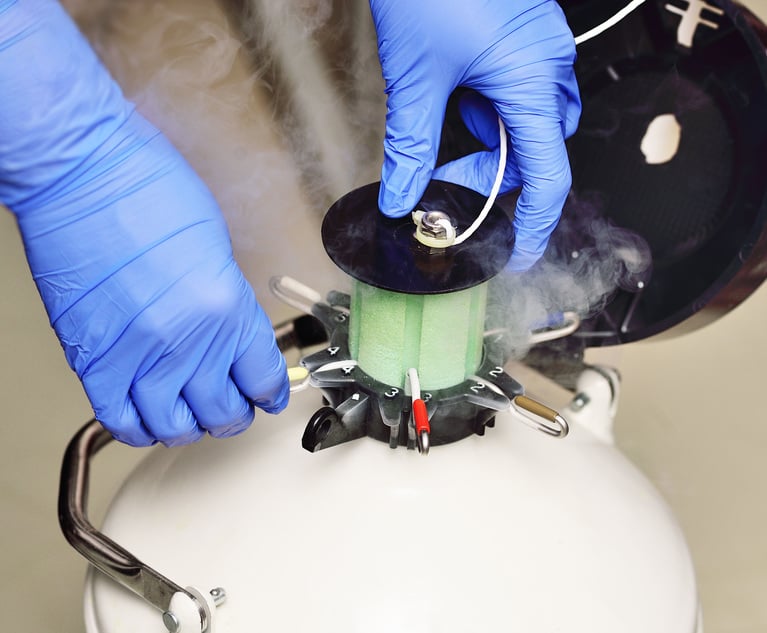 Connecticut Bar Foundation Executive Director Natalie Wagner. Courtesy photo
Connecticut Bar Foundation Executive Director Natalie Wagner. Courtesy photoCOVID-19 Has Made It Harder for the Poor to Get Legal Aid. Here's What Lawyers Can Do Today to Help
The executive director of the Connecticut Bar Foundation talks about the nonprofit and how COVID-19 has impacted how it provides funding to legal aid organizations.
May 28, 2020 at 06:55 PM
4 minute read
COVID-19 has had a negative impact on many aspects of society and law, including the ability of the Connecticut Bar Foundation to provide legal aid funding to organizations that serve low-income clients.
The foundation, which is the largest funder of legal aid in Connecticut, is allowed under the rules of the state judicial branch to receive certain increases in court fees. But court closures amid the coronavirus pandemic means the judicial branch will likely see a steep drop in fees collected in 2020 from such areas as initial filing fees and out-of-state attorneys seeking to appear in Connecticut.
And this in turn will likely leave legal aid underfunded.
Attorney Natalie Wagner, executive director of the foundation, said Thursday the nonprofit received $13.2 million in revenue from court fees in 2017, $12.9 million in 2018, $12.9 million in 2019 and budgeted for $12.8 million this year.
But this year's funding may fall as much as 28%, or about $9.25 million, Wagner said.
"That means we'd lose about $3.6 million that would normally go to legal aid providers," she said.
That projected loss, Wagner said, will have a spiral effect: the organization's inability to "serve the neediest among us," Wagner said. "And that population is growing much faster because of COVID."
In normal times, Wagner said, legal aid providers such as Greater Hartford Legal Aid and Connecticut Legal Services, help people with issues related to housing, food and employment, all which are magnified during the current crisis.
"Legal aid providers help tens of thousands of Connecticut residents at no cost," Wagner said. "When an individual loses or is denied access to basic human necessities and also denied an attorney, it makes it very difficult for them to retain or obtain those necessities."
The foundation's 2020 budget, Wagner said, is a little more than $19 million of which $17.7 million are awarded in grants to its grantees.
Foundation member Joette Katz, a former state Supreme Court justice and current chairwoman of the Connecticut Law Tribune Editorial Board, said, "The foundation is particularly needed in these times. People need the comfort of a sound legal system and that's what we are here to do."
Attorneys can do their part by offering to donate their time. They can use the Connecticut Bar Association pro bono training portal to get started, Wagner said. Attorneys, along with the general public, can also donate money to the foundation to support legal services, which will then pass on the funds to its 11 grantees, or legal aid organizations.
A large part of the nonprofit's funding also comes from administering the interest earned on Interest on Lawyers Trust Accounts, or IOLTAs. Wagner said the foundation gets all of the interest generated from IOLTA accounts because the state's judicial branch selected the foundation to administer the IOLTA program more than a dozen years ago. The foundation received more than $20 million from the IOLTA interest in 2007, a year before the recession. In 2019, that number was just $4.8 million.
Wagner said attorneys can also consider helping in another way: Putting a request into their banks regarding IOLTA programs.
"Attorneys can reach out to their banks and let them know they are grateful for the IOLTA programs as not all banks participate," Wagner said, "We'd ask those attorneys to ask their banks to raise the IOLTA rates to the extent they are capable, and in doing so, letting those banks know it will help low-income people in need that the foundation helps support."
Related stories:
This content has been archived. It is available through our partners, LexisNexis® and Bloomberg Law.
To view this content, please continue to their sites.
Not a Lexis Subscriber?
Subscribe Now
Not a Bloomberg Law Subscriber?
Subscribe Now
NOT FOR REPRINT
© 2024 ALM Global, LLC, All Rights Reserved. Request academic re-use from www.copyright.com. All other uses, submit a request to [email protected]. For more information visit Asset & Logo Licensing.
You Might Like
View All

T14 Sees Black, Hispanic Law Student Representation Decline Following End of Affirmative Action

Wrongful-Death Case Against Adult Day Care Sparks Call for State Regulation
3 minute read
Trending Stories
- 1Call for Nominations: Elite Trial Lawyers 2025
- 2Senate Judiciary Dems Release Report on Supreme Court Ethics
- 3Senate Confirms Last 2 of Biden's California Judicial Nominees
- 4Morrison & Foerster Doles Out Year-End and Special Bonuses, Raises Base Compensation for Associates
- 5Tom Girardi to Surrender to Federal Authorities on Jan. 7
Who Got The Work
Michael G. Bongiorno, Andrew Scott Dulberg and Elizabeth E. Driscoll from Wilmer Cutler Pickering Hale and Dorr have stepped in to represent Symbotic Inc., an A.I.-enabled technology platform that focuses on increasing supply chain efficiency, and other defendants in a pending shareholder derivative lawsuit. The case, filed Oct. 2 in Massachusetts District Court by the Brown Law Firm on behalf of Stephen Austen, accuses certain officers and directors of misleading investors in regard to Symbotic's potential for margin growth by failing to disclose that the company was not equipped to timely deploy its systems or manage expenses through project delays. The case, assigned to U.S. District Judge Nathaniel M. Gorton, is 1:24-cv-12522, Austen v. Cohen et al.
Who Got The Work
Edmund Polubinski and Marie Killmond of Davis Polk & Wardwell have entered appearances for data platform software development company MongoDB and other defendants in a pending shareholder derivative lawsuit. The action, filed Oct. 7 in New York Southern District Court by the Brown Law Firm, accuses the company's directors and/or officers of falsely expressing confidence in the company’s restructuring of its sales incentive plan and downplaying the severity of decreases in its upfront commitments. The case is 1:24-cv-07594, Roy v. Ittycheria et al.
Who Got The Work
Amy O. Bruchs and Kurt F. Ellison of Michael Best & Friedrich have entered appearances for Epic Systems Corp. in a pending employment discrimination lawsuit. The suit was filed Sept. 7 in Wisconsin Western District Court by Levine Eisberner LLC and Siri & Glimstad on behalf of a project manager who claims that he was wrongfully terminated after applying for a religious exemption to the defendant's COVID-19 vaccine mandate. The case, assigned to U.S. Magistrate Judge Anita Marie Boor, is 3:24-cv-00630, Secker, Nathan v. Epic Systems Corporation.
Who Got The Work
David X. Sullivan, Thomas J. Finn and Gregory A. Hall from McCarter & English have entered appearances for Sunrun Installation Services in a pending civil rights lawsuit. The complaint was filed Sept. 4 in Connecticut District Court by attorney Robert M. Berke on behalf of former employee George Edward Steins, who was arrested and charged with employing an unregistered home improvement salesperson. The complaint alleges that had Sunrun informed the Connecticut Department of Consumer Protection that the plaintiff's employment had ended in 2017 and that he no longer held Sunrun's home improvement contractor license, he would not have been hit with charges, which were dismissed in May 2024. The case, assigned to U.S. District Judge Jeffrey A. Meyer, is 3:24-cv-01423, Steins v. Sunrun, Inc. et al.
Who Got The Work
Greenberg Traurig shareholder Joshua L. Raskin has entered an appearance for boohoo.com UK Ltd. in a pending patent infringement lawsuit. The suit, filed Sept. 3 in Texas Eastern District Court by Rozier Hardt McDonough on behalf of Alto Dynamics, asserts five patents related to an online shopping platform. The case, assigned to U.S. District Judge Rodney Gilstrap, is 2:24-cv-00719, Alto Dynamics, LLC v. boohoo.com UK Limited.
Featured Firms
Law Offices of Gary Martin Hays & Associates, P.C.
(470) 294-1674
Law Offices of Mark E. Salomone
(857) 444-6468
Smith & Hassler
(713) 739-1250










